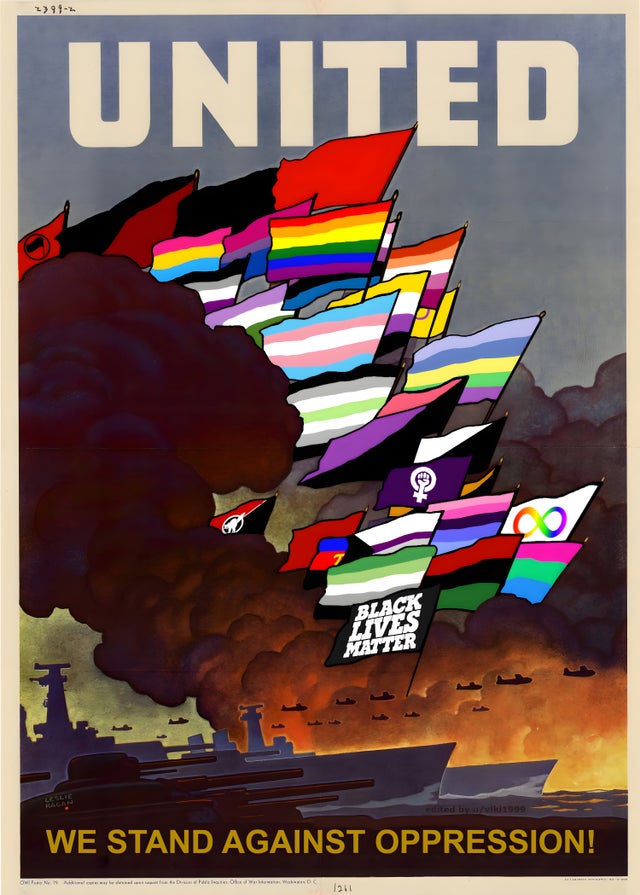The kingdoms and duchies are westphalian in nature. Borders are extremely firm, there are no marchers between states, there are little to no disputes about what land belongs to who. The subdivisions of barons and manors are treated like modern bureaucratic divisions instead of the statelets they are historically.
Both the nobility and peasantry are nationalistic, the former limits their affairs entirely within their border and never ventures ventures into foreign courts; those who do are seen as treacherous; while the latter hold their loyalty to the abstract concept of their state and are surprisingly well educated in the civics of their country. Their military are professional, with the levy treated like modern conscripts while the warrior class are sword-wielding special forces. The church are also surprisingly secular, they gain their power through abstract social influence over the faithful instead of through their ownership of their own estates and domains.
The economy is capitalistic. Land ownership is treated with modern sensibility where owning a mere piece of paper (or parchment) grants one an inalienable and exclusive right over that land, unlike how it historically was where ownership is often a heavily disputed issue and a source of endless feuds. Likewise, there are no such thing as "the commons" in fantasy and fiction land, all lands are already surveyed, enclosed, and subdivided by offscreen surveyors that must've been either magical or superhuman to accomplish such feat without modern technology.
The merchants are medieval capitalists who often owned means of productions with weavers and millers employed for fraction of their surplus values. Independent ventures like the blacksmiths and shops are treated small business who simply are yet to hit their big break, and will turn into big capitalists with chains of smithies and shops if possible.
TL:DR: it is easier to imagine magical dragons than to imagine a world without capitalism.
what the revision of systems history (capitalism started at bartering!!!!!!!) does to an escapist genre
fun fact: It's anachronistic to imply bartering is what happened before money systems.
There's zero evidence for this. Barter systems sprang up when money systems failed. Before money existed, allocation of goods was done communally.
Like literally any society before money, pretty much. There is no examples of any society that uses bartering for goods as described by Adam Smith. "I'll make you two shoes for your three chickens" kind of stuff never happened. They used communal systems or a form of debt, or usually a combination of both.
OP is likely referencing an excellent book, Debt: The First 5000 Years by David Graeber. Specifically the chapter I'm referring to is called "The Myth of Bartering" and it tears down Adam Smith's notion that "before money people exchanged things inefficiently through bartering" He's an anthropologist by training and the book is littered with historic and contemporary examples of non-monetary societies.
https://warwick.ac.uk/fac/arts/english/currentstudents/undergraduate/modules/fulllist/special/statesofdamage/syllabus201516/graeber-debt_the_first_5000_years.pdf
I should say bartering did sometimes exist in prehistory, but it was between different groups of people who otherwise had little contact, not among themselves in their everyday lives. Bartering wasn't a primary mechanism in a person's everyday life unless they were in a collapsed civilization that previously had money. It makes little sense to go around your whole settlement hoping for someone that needs cotton but has excess leather. Makes more sense and is far easier to distribute in a more communal way and trade only when travellers show up with stuff you've never seen before.
capitalism is when you have stuff
communism when you no have stuff
capitalism is when spoon
socialism is when you share the spoon (bad)
communism is when stalin takes the spoon and eats all the grain and puts you in a gulag for life
ohh yeah, the existence of nationalism is usually anachronistic. The nation-state really came into full effect around the Napoleonic wars.
You could do a thing of transposing nationalistic ideas into earlier settings but I only remember a Song of Ice and Fire playing around with it, with people treating the regions as nation states, Reachmen, Northmen, Dornishmen, etc.
I get the feeling OP is complaining about ASOIAF. Kingdoms hold the same borders with the same ruling families for 1000s of years. Everyone speaks the same language but each kingdom is nationalistic. Everyone except for a handful of characters are atheist, there's no development of what peasant life actually looks like.
It's been a long time but I thought the kingdoms in game of thrones were a single empire only a single generation prior to the books starting? And the entire continent had just been taken, via genocide, from the indigenous people a few hundred years prior to that.
Unfortunately I know far too much ASOIAF lore that will be permanently burned into my brain.
Aegon's Conquest happened 300 years before the events of the books, with the last Targaryen dragons dying some 150 years before the books. The Andal Invasion (which was where the Faith of the Seven Came from) is in-universe a debated fact, but the lowest estimate is minimum a thousand years before the books.
The coming of the First Men, who genocided the Children of the Forest (a non-human race) is another in-universe unknown, but could be like 10,000 years. I think the Night's Watch and the Wall are about 8,000 years old.
We also don’t have a modern concept of the distinction between nation, state, and country. I’d imagine it’s difficult to convey that nuance
In fact, the most modern thinker loses.
fucking GOOD. maybe I'll watch it just because of that.
WoT had the Tinkers who were mostly based on the Irish Travelling People, but they're still pretty analogous to the Romani.
I thought travelers were genetically romani? Culturally they're certainly. I swear I read something to that effect in the news when DNA lineage went mainstream.
This has annoyed me a lot, too. I actively try to challenge this in the worldbuilding I do in D&D, even if I'm humoring the traditional "return to feudalism" setting.
and they are always too clean! Throw some dirt on your medieval costumes for godsakes
Supposedly the literal Vikings bathed more often than the average medieval peasant.
because medieval people would just be more tolerant of dirt caked on them cause 'olden-times'?
on the one hand, we've got mountains of evidence ranging from material, medical, and literary sources for the existence of bathing culture in medieval europe
on the other a constellation of renaissance treatises made by madmen who thought bathing would kill you & bathhouse bans that were targeted at prostitution, not the idea of being clean
In fantasy, there's often a scientism with regard to magic and fantasy creatures too. This was probably really influenced by table top gaming (especially DnD) trying to systemize everything. 3e really exemplified this scientism in it's monster manual but also in 3e everything has price (from xp, to magic items, to casting spells) so everything is reducible to a market relation (sans supply/demand).
Lot of this was true in prior editions of dnd, but I'm less familiar with those.
Hard magic systems are fine, but it should always be soft enough for it to actually feel like magic instead of a science. The main exception is FMA where it's explicitly not magic from the get-go.
One of the worst things in storytelling is a magic system hardening, as well. Leave some mystery element and it can free up the writers to be more flexible in the future.
Anyone have any book recommendations for the organization of nations throughout history? Ideally it would basically be a sequel to The Origin of the Family, Private Property, and the State.
This is specifically about Modern World History, but yes. The Origins of the Modern World by Robert Marks is about how the world formed into nation-states. He starts around the 15th century when most the world's population contained by 5 land based empires and focuses more on the world systems that enabled the rise of nation-states. It's not explicitly Marxist, but it is definitely a materialist history.
Yes, ASOIAF will always hold a special place in my heart because it got me back into the habit of reading in High School. But the world building is not great.
Ascend to anarcho-RuneScapism.
There are 4-7 major "countries" but they effectively have open borders. That's not to mention all the planets and dimensions you can freely visit.
The majority of farming allotments, fishing spots, etc you are free to use as much as you please and keep every fish you catch, every tomato you grow, etc.
Join us in fulfilling comrade Guthix's dream.
The show, Mystery Science Theater 3000, is actually focused on watching old bad movies and heckling them, with intermission scenes like what I posted before.
https://www.youtube.com/user/mst3kofficial








